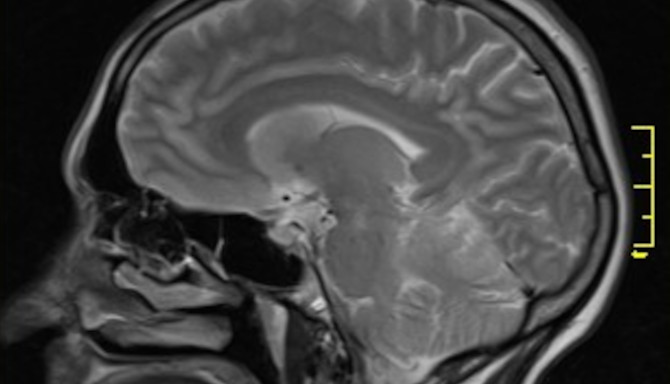Author: Lynda Williams
medwireNews: First-line treatment with dabrafenib plus trametinib is significantly more likely to achieve a response than chemotherapy for children with low-grade glioma carrying a BRAF V600 alteration, indicates a phase 2 trial.
The research, published in The New England Journal of Medicine, also demonstrated a significant improvement in progression-free survival (PFS) and fewer adverse events (AEs) with the targeted combination regimen.
“Overall, these findings show the value of early molecular testing in children with low-grade glioma to determine the presence or absence of BRAF V600 mutations,” say Eric Bouffet (Hospital for Sick Children, Toronto, Ontario, Canada) and co-authors.
The trial recruited children aged 1–17 years who were scheduled to receive first-line systemic treatment for glioma, including pilocytic astrocytoma, ganglioglioma, low-grade glioma otherwise not specified and pleomorphic xanthoastrocytoma.
The patients were followed-up for a median of 18.9 months by data cutoff, at which point treatment was ongoing for 84% of the 73 children randomly assigned to receive oral dabrafenib (5.25 or 4.5 mg/kg for age <12 years and ≥12 years, respectively) plus oral trametinib (0.032 or 0.025 mg/kg for age <6 years and ≥6 years, respectively).
This compared with 22% of the 37 children who were instead given a standard paediatric regimen of carboplatin plus vincristine. The median duration of treatment in the two arms was 17.4 and 7.8 months, respectively.
The primary endpoint of the overall response rate was 47% with dabrafenib plus trametinib versus 11% with chemotherapy, giving a significant risk ratio of 4.31 in favor of the targeted treatment.
Children given dabrafenib plus trametinib were almost twice as likely to experience clinical benefit – defined as a complete or partial response or stable disease lasting for at least 24 weeks – as their chemotherapy-treated counterparts, at 86% versus 46% and a significant risk ratio of 1.88.
The mediation duration of response to dabrafenib plus trametinib was 20.3 months, but this was not evaluable for the four patients who responded to chemotherapy, Bouffet et al report.
Median PFS was 20.1 months with dabrafenib plus trametinib and a median 7.4 months with chemotherapy, giving a significant hazard ratio of 0.31 for progressive disease or death with the targeted treatment.
The estimated 6-month PFS rate was 87% with dabrafenib plus trametinib versus 58% with chemotherapy and the corresponding 12-month rates were 67% and 26%. There were no deaths among the patients given dabrafenib plus trametinib and one glioma-related death in the chemotherapy arm.
The investigators say that the safety profile for the targeted therapy was “consistent” with that reported for adult patients. Patients given dabrafenib plus trametinib had fewer grade 3 or more severe AEs than controls (47 vs 94%) and were less likely to discontinue treatment due to AEs (4 vs 18%).
The most common any-grade AEs with dabrafenib plus trametinib and chemotherapy were pyrexia (68% vs 18%), headache (47 vs 27%) and vomiting (34 vs 48%).
“Nevertheless, potential toxic effects with dabrafenib plus trametinib and the risk–benefit ratio should be evaluated on an individual basis particularly because indefinite treatment may be required and the long-term safety of dabrafenib plus trametinib in this population is unknown,” recommend Bouffet and co-authors.
News stories are provided by medwireNews, which is an independent medical news service provided by Springer Healthcare Ltd. © 2023 Springer Healthcare Ltd, part of the Springer Nature Group
This independent news story was supported by an educational grant from L’Institut Servier, Suresnes, France.
Image Credits: © Nevit Dilmen CC BY-SA 3.0</a>, via Wikimedia Commons



